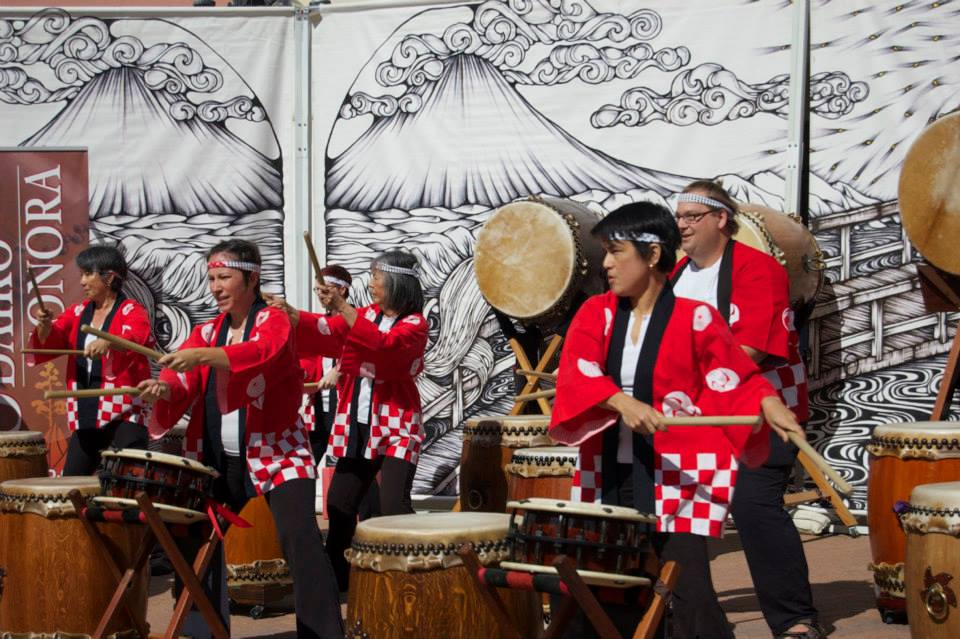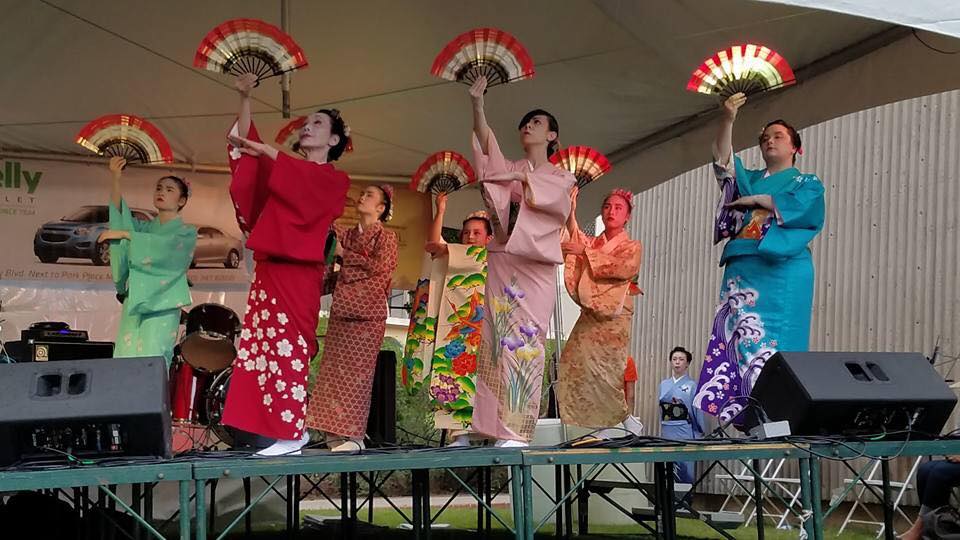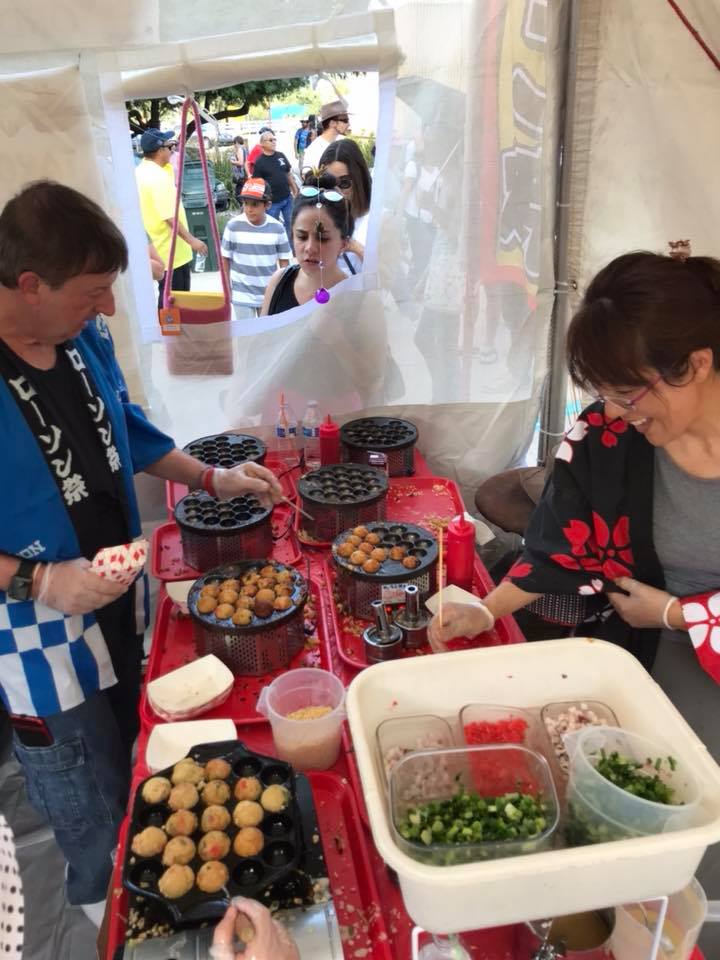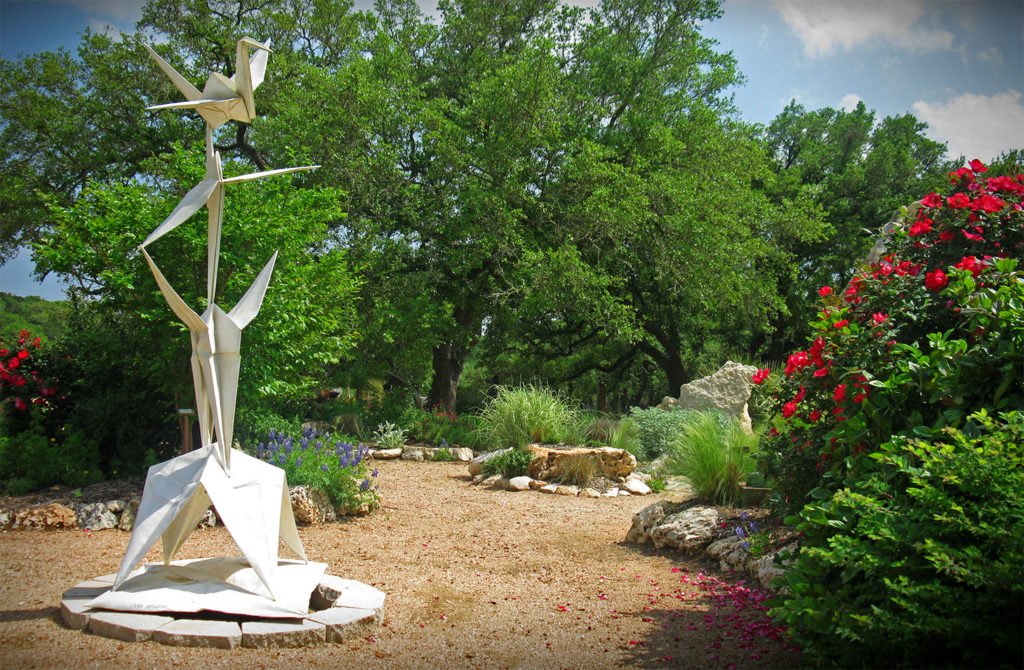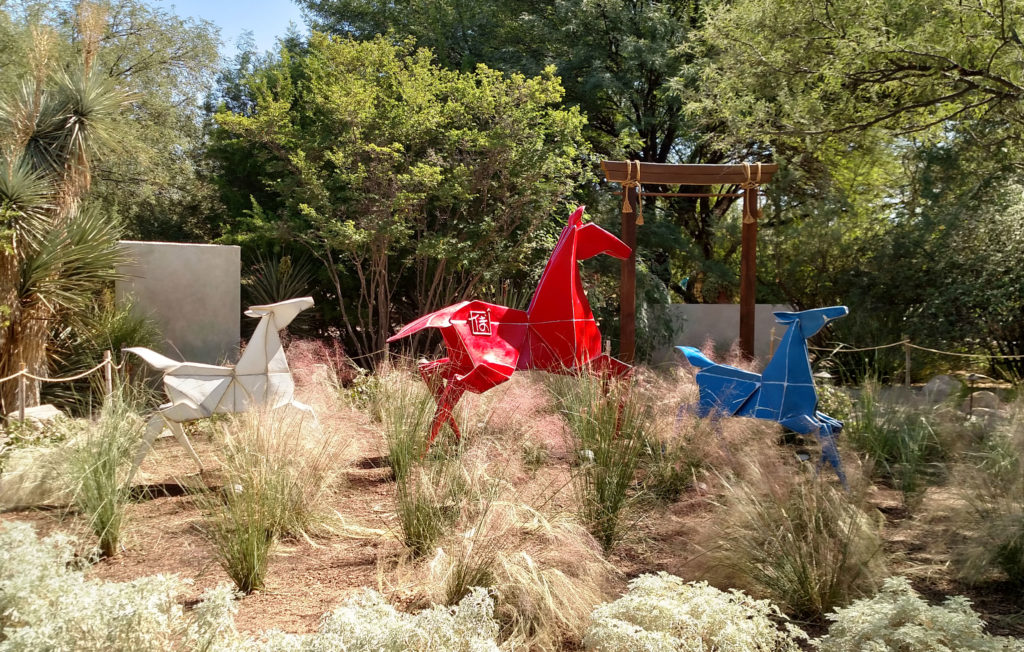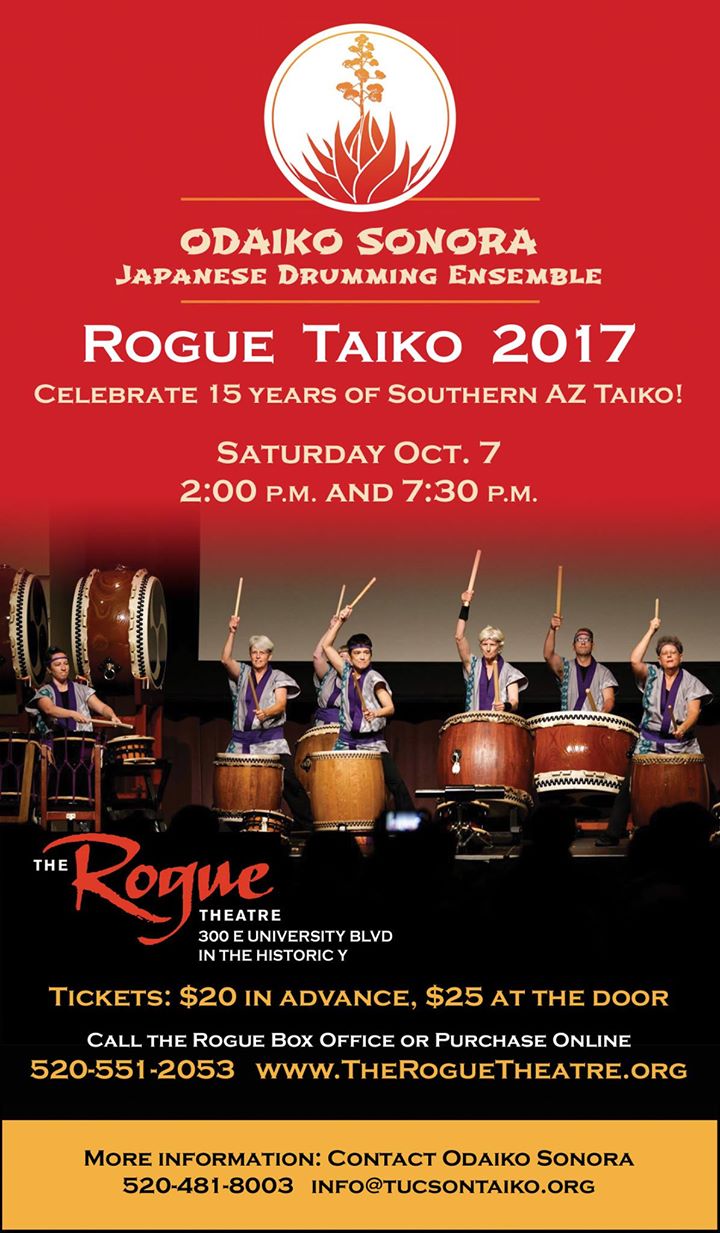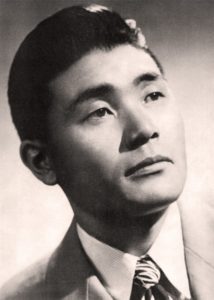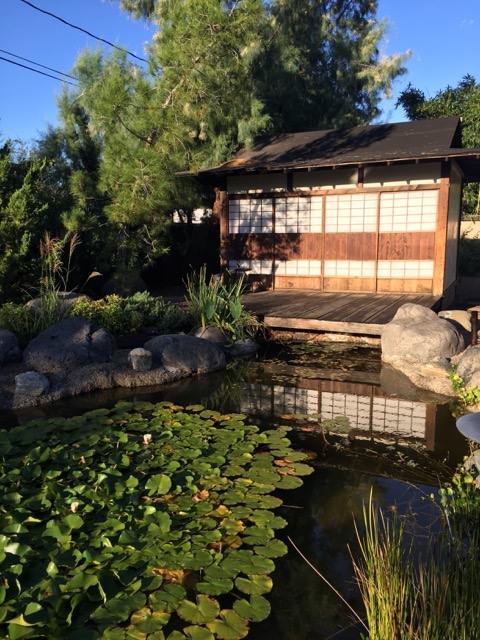JAPANESE CULTURE FLOWERS
AS YUME JAPANESE GARDENS OF TUCSON REOPENS OCTOBER 1
“Yume Japanese Gardens, the first and only authentic Japanese gardens in Tucson, will reopen for their fifth Fall/Winter season Sunday, October 1, with a roster of exhibits, workshops, and events that provide visitors with a distinctive window on Japan.
Museum exhibits include “Between Folds: Classical Origami,” a presentation of traditional folded Japanese paper forms from October 1 to December 31, as well as “Mingei: Old Japan at Hand,” a new permanent display of vintage hand-crafted folk art objects produced by ordinary Japanese and used in their daily routines.
A series of workshops in Ikebana – traditional Japanese flower arranging and techniques – extends throughout the Fall/Winter season and is complemented by an Ikebana Festival November 21-26. This bi-annual event is one of the most popular at the Gardens and will feature 50 Japanese floral arrangements from five different schools, arrayed throughout the grounds, the museum and the gallery.
Other events include an artist reception on October 8 at the inauguration of “Enlightened Heart,” an exhibition and sale until December 1 of wooden sculptures and tablets on which Phoenix Ikebana master and ceramicist Ping Wei has used wood-burning tools to engrave Asian calligraphy and other designs.
October 28 will bring a tea ceremony, a hallowed spiritual and artistic ritual performed by a tea master in traditional kimono. “Enchanted Evenings,” November 10-12, will open the Gardens after dark for strolls by candle- and lantern-light, to the accompaniment of traditional Japanese melodies.
Non-profit Yume Japanese Gardens of Tucson opened in January 2013 and showcases five examples of traditional Japanese landscaping. Besides educational and cultural activities, it offers a “Stroll for Well-Being” program of research-supported therapeutic guided garden walks. For details on its benefits, visit www.yumegardens.org.”
# # #
Gardens hours are 9:30 am to 4:30 pm Tuesday through Saturday, October 1 to May 7, at 2130 N. Alvernon Way, one block south of the Tucson Botanical Gardens. For more about activities at Yume, email yume.gardens@gmail.com, visit www.yumegardens.org, or call (520) 303-3945.

